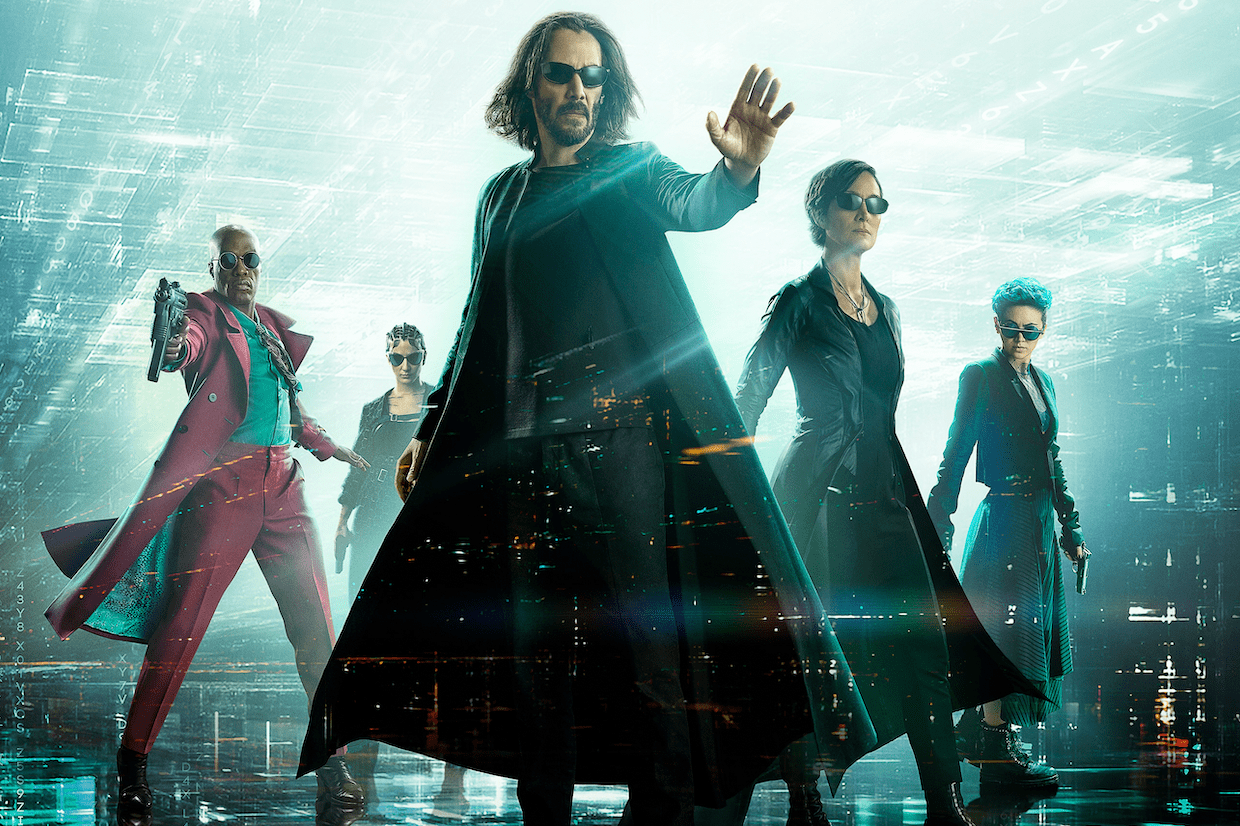Chinese streaming services banned movies and videos featuring actor Keanu Reeves after he appeared in a virtual event hosted by Tibet House U.S., a nonprofit organization funded by the leader of Tibetan Buddhism, the Dalai Lama. Reeves’ name has also reportedly disappeared from Chinese social media platforms.
China’s erasure of Keanu Reeves was discovered on Friday by Reuters, which found that even Reeves’ most popular films – blockbusters like The Matrix, Speed, Bill & Ted’s Excellent Adventure, and John Wick – have been removed from streaming services like Tencent Video and iQiyi. Searches for both the English and Chinese versions of Reeves’ name produced no results on the popular WeChat messaging platform.
The L.A. Times discovered on Monday that almost all movies featuring Reeves have quietly vanished from the streaming libraries at Tencent, iQiyi, Youku, Migu Video, Bilbili, and Xigua Video.
The incredibly petty Chinese censors decided not to ban Toy Story 4, in which Reeves voices a toy stuntman character named Duke Caboom – but they erased the credits for the English voice cast, naming only the local actors who performed the Chinese dub of the movie.
“Why all of a sudden did they decide to take this measure at this exact moment? It’s a question we as outsiders might never be able to answer. The system is so opaque that it’s pretty much impossible to pinpoint which agency or person is responsible,” U.S.-based researcher Alex Yu of China Digital Times told the L.A. Times.
Representatives for the Chinese streamers and social media platforms did not answer questions from Western reporters about the sudden decision to cancel Reeves, who has not been shy about his long-standing interest in Tibetan Buddhism – he starred in a movie on the subject in 1993 and was temporarily ordained as a Buddhist monk in the Tibetan Himalayas in 2016.
Reeves has gone out of his way to work with communist censors to ensure his movies could be screened in China. In 2013, he told The Atlantic about removing scenes of underground fighting in Beijing from his film Man of Tai Chi because the censors insisted underground fighting does not exist in Beijing. He also sportingly reduced the number of times people got punched in the head during the film because Chinese censors apparently have limits on such things.
Man of Tai Chi was touted as a milestone in cooperation between Chinese and American production companies. It was the first film directed by Reeves, and while he appears in it, he uncharacteristically plays the sadistic villain. It did not fare as well as hoped at the Chinese box office, but Chinese audiences seemed to appreciate Reeves making the effort to create a movie for them, and giving the starring role to a real-life Chinese martial arts champion and personal friend of his, Tiger Chen.
Most outside observers believe the obvious explanation for the banning of Reeves’ movies is that he was a headline performer at the 35th annual Tibet House U.S. Benefit Concert on March 3. Reeves’ contribution to the event was reading a poem co-written by Allen Ginsburg, who was a devoted participant in the Tibet House U.S. concert until his death in 1997.

Tibetan-Americans along with friends and supporters of Tibet gather to protest in front of the Consulate General of China in Los Angeles, California on March 10, 2019, to mark the 60th Global Tibetan National Uprising Commemorations. (FREDERIC J. BROWN/AFP via Getty Images)
Tibet House U.S. was founded in 1987 by supporters of the Dalai Lama, the spiritual leader of Tibetan Buddhism. The Chinese Communist government views Tibet House U.S., like most organizations associated with the Dalai Lama, as a separatist threat.

Tibetan spiritual leader the Dalai Lama (C) arrives for a long-life prayer offering dedicated to him at Tsuglagkhang Temple in McLeod Ganj on September 13, 2019. (LOBSANG WANGYAL/AFP via Getty Images)
The Hollywood Reporter described Reeves coming under savage attack in Chinese social media by the “Little Pinks” – hardcore Chinese nationalists – who demanded a retaliatory boycott of Reeves’ most recent film, The Matrix Resurrections.
“How can Keanu Reeves not understand this and take part in a pro-Tibet independence concert? Aren’t these celebrities afraid of losing the China market?” whined one of the Little Pinks, as quoted by Variety in late January, when the Tibet House U.S. concert was announced.
“The film [‘The Matrix Resurrections’] can be taken down now. Get out of the Chinese market, thank you,” snarled another.
“These high school graduates in Hollywood can’t even identify where Tibet is on the map, but they ‘care’ if people there are leading a good life,” scoffed a third.
Other Little Pinks dismissed Reeves as a “has-been” and belligerently insisted “Tibet belongs to China.”
As the Hollywood Reporter impishly noted, The Matrix Resurrections had pretty much boycotted itself by that point, having earned a paltry $12.4 million at the Chinese box office, so the censors evidently decided to aim higher by wiping out Reeves’ entire filmography.
The L.A. Times noted most of the musicians who routinely participate in the annual Tibet House U.S. concert have not been banned from China.
Reeves might have been singled out for cancellation because he has a large and devoted Chinese fan following. Pop songs have been written about him, and Chinese social media users frequently share clips and memes from Keanu Reeves movies that were never even released in China. The Little Pinks were not punching down by taking him out.



COMMENTS
Please let us know if you're having issues with commenting.